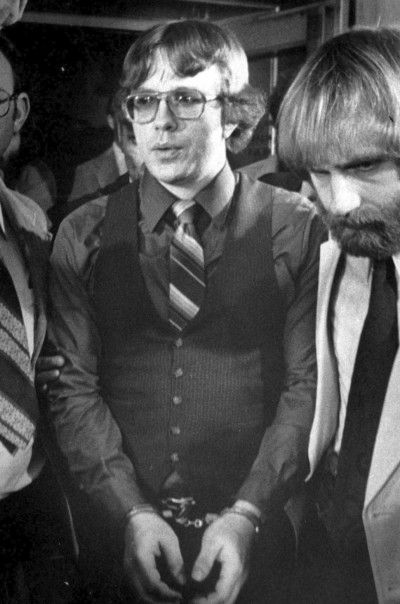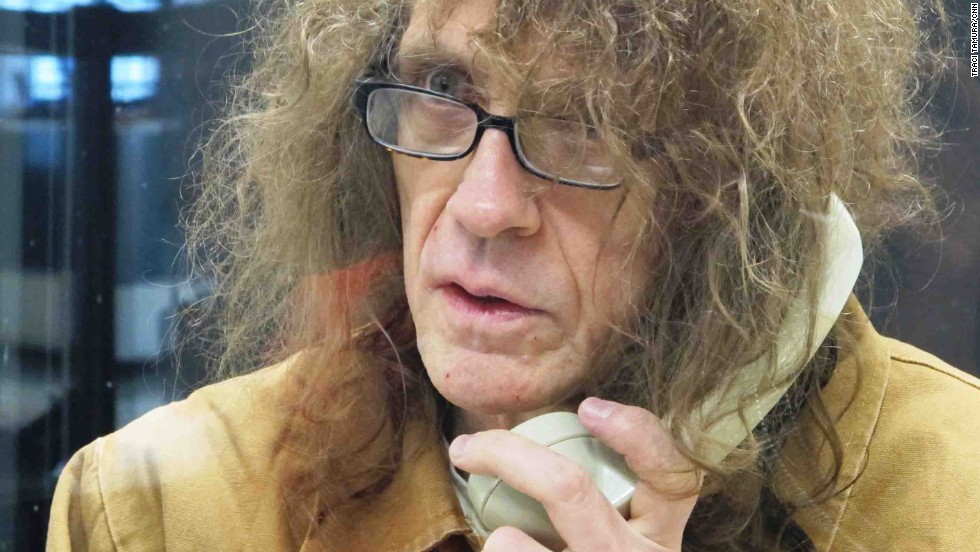Joseph Paul Franklin (Joseph Paul Franklin)

Franklin was born James Clayton Vaughn in Mobile, Alabama, to a poor family. He suffered severe physical abuse as a child. As early as high school, he had become interested first in evangelical Christianity, then Nazism, and later held memberships in both the National Socialist White People’s Party and the Ku Klux Klan and even changed his name to Joseph Paul Franklin in honor of Paul Joseph Goebbels who was the Nazi propaganda minister under Adolf Hitler. In the 1960’s, Franklin was inspired to try to start a race war after reading Mein Kampf. “I’ve never felt that way about any other book that I read,” he would reflect later. “It was something weird about that book.” For much of his life, Franklin was a drifter, roaming up and down the East Coast looking for chances to “cleanse the world” of people he considered inferior, especially blacks and Jews. His primary source of financial support appears to have come from bank robberies. He supplemented his bank robbery income with paid blood bank donations, which eventually led to his subsequent capture by the FBI.
Following the two murders in Utah, Franklin returned to the midwestern U.S. Traveling through Kentucky, he was detained and questioned regarding a firearm that he was transporting in his automobile. Franklin fled from this interrogation, but authorities recovered sufficient evidence from the vehicle to point suspicions that potentially linked him to the sniper killings. Franklin’s multiple distinctive racist tattoos, coupled with his habit of visiting blood banks, led investigators to issue a nationwide alert to blood banks. In October, 1980, the distinctive tattoos drew the attention of a Florida blood bank worker, who contacted the FBI. Franklin was arrested in Lakeland, Florida on October 28, 1980. Franklin tried to escape during the judgment of the 1997 Missouri trial on charges of murdering Gerald Gordon. He was convicted of the murder charge. The psychiatrist Dorothy Otnow Lewis, who had interviewed him at length, testified for the defense that she believed that he was a paranoid schizophrenic and unfit to stand trial. She noted his delusional thinking and a childhood history of severe abuse. In October 2013, Larry Flynt called for clemency for Franklin asserting “that a government that forbids killing among its citizens should not be in the business of killing people itself.” Franklin was held on death row at the Potosi Correctional Center near Mineral Point, Missouri. In August 2013 the Missouri State Supreme Court announced that Franklin would be executed later that year on November 20. Missouri Attorney General Chris Koster said in a statement that by setting execution dates, the state high court “has taken an important step to see that justice is finally done for the victims and their families”.
Franklin’s execution was complicated because it took place during a period when various European drug manufacturers refused or objected on moral grounds to having their drugs used in a lethal injection. In response Missouri announced that it would use for Franklin’s execution a new method of lethal injection, which used a single drug provided by an unnamed compounding pharmacy. A day before his execution, U.S. District Judge Nanette Laughrey (Jefferson City) granted a stay of execution over concerns raised about the new method of execution. A second stay was granted that evening by U.S. District Judge Carol E. Jackson (St. Louis), based on Franklin’s claim that he was too mentally incompetent to be executed. An appeals court quickly overturned both stays, and the Supreme Court subsequently rejected his final appeals.
In an interview with the St. Louis Post-Dispatch newspaper published on Monday, November 17, 2013, Franklin said he had renounced his racist views. He said his motivation had been “illogical” and was partly a consequence of an abusive upbringing. He said he had interacted with black people in prison, adding: “I saw they were people just like us.” Franklin was executed at the Eastern Reception, Diagnostic and Correctional Center in Bonne Terre, Missouri on November 20, 2013. The execution began at 6:07 AM CST and he was pronounced dead at 6:17 AM CST. His execution was the first lethal injection in Missouri to use pentobarbital alone instead of the conventional three drug cocktail. An Associated Press news agency journalist said that 5g of the barbiturate pentobarbital was administered. It took him 10 minutes to be pronounced dead. Three media witnesses said Franklin did not seem to express pain. He did not make any final written statement and did not speak a word in the death chamber. After the injection, he blinked a few times, breathed heavily a few times, and swallowed hard, the witnesses said. The heaving of his chest slowed, and finally stopped, they said.
Born
- April, 13, 1950
- USA
- Mobile, Alabama
Died
- November, 20, 2013
- USA
- Bonne Terre, Missouri
Cause of Death
- execution by lethal injection



